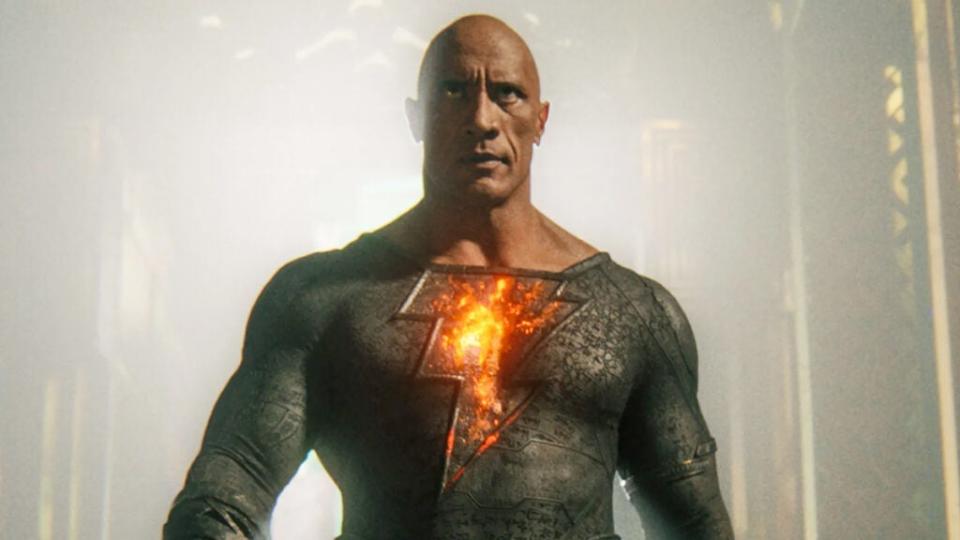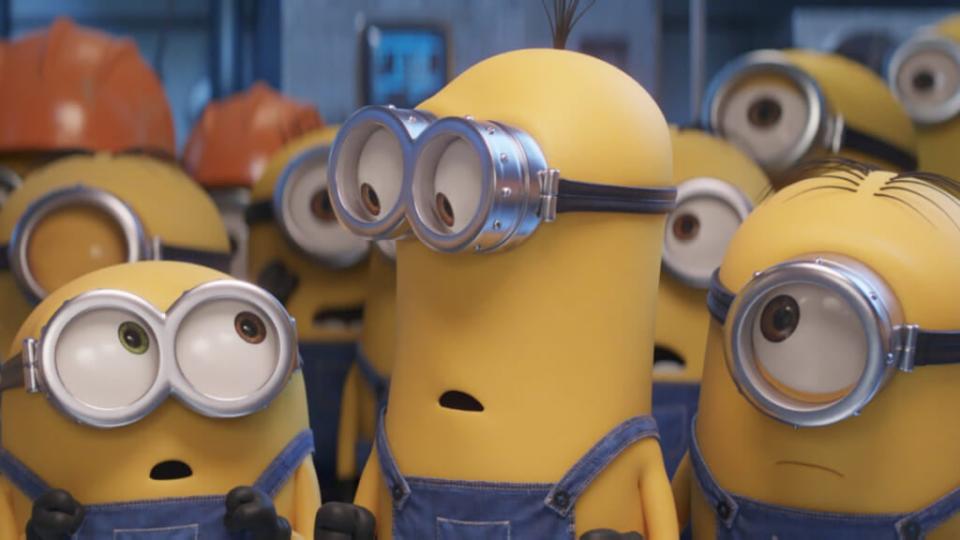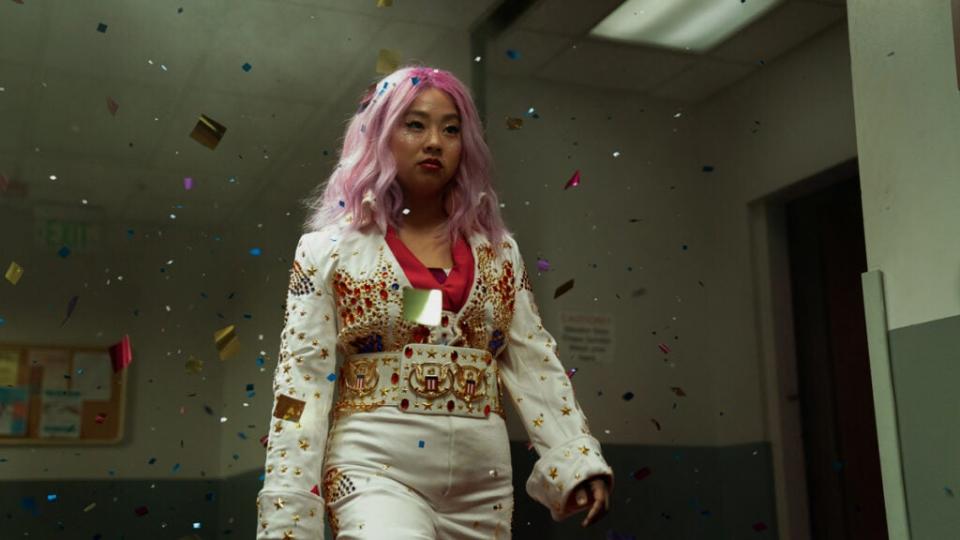2022 Box Office Review: Where Every Hollywood Studio Stands
If 2021 was a year for the box office where nothing was normal and nobody knew anything, 2022 was a year where the box office started to once again look like it did before COVID-19 swept the world… but only on the surface.
Last year, each studio had a unique strategy on how to release movies in an unstable market where it was unclear whether any kind of movie could earn the box office riches their pre-pandemic predecessors once made. With “Spider-Man: No Way Home” breaking records in the middle of a global COVID surge, the goal for studios this year was to start figuring out what their strategies for releasing films would be at a time when streaming demand is more popular than ever and the viability of certain genres at the box office were still uncertain.
Some studios developed those strategies with astounding success, even providing hope for their rivals that family films, original horror and biopics leaning towards older moviegoers can still become hits. But others are ending 2022 on a very uncertain note, needing to get back on the right track after some serious cinematic misfires.
Let’s break them down one by one.
Also Read:
‘Babylon’ Rebuts the Idea That Movie Stars No Longer Exist in a Surprising Way (Commentary)
‘Babylon’ aside, Paramount is back, baby
The struggles of Damien Chazelle’s $78 million film “Babylon” — just $5.8 million after five days in domestic theaters — was a rough way for Paramount to cap off the year, but that shouldn’t overshadow the slew of winners that came out of the Melrose Lot.
The big one, of course, was “Top Gun: Maverick,” blowing away even the sky-high hopes that the studio and theater execs alike had for it as it grossed $719 million domestic and $1.5 billion worldwide, becoming Paramount’s first billion-dollar hit in 11 years and second only to “Titanic” on its all-time charts. But the studio also built “Sonic the Hedgehog” into a reliable franchise, found low-budget profit with “Jackass Forever” and “Scream,” and turned “The Lost City” and “Smile” into surprise $100 million-plus grossers.

In all, Paramount saw its domestic grosses soar to over $1.3 billion, the highest since 2011 and more than double the terrible $563 million earned by the studio in 2019. Once the pandemic hit, the studio spent 2020 offloading films like “Trial of the Chicago 7” and “Coming 2 America” to streamers while pushing “Top Gun: Maverick” from 2021 to 2022 in hopes of a more favorable release environment.
Those moves, done under the leadership of CEO Brian Robbins, have paid off. Now Paramount’s next job is to keep that momentum going with a 2023 slate that includes a new “Teenage Mutant Ninja Turtles” animated movie and new “Transformers” and “Mission: Impossible” films in the summer. While the franchise building continues, the studio’s freshly inked first-look deal with Damien Chazelle may also be a signal to Hollywood’s filmmakers that Paramount is open for partnerships. If more deals follow, “Babylon” may be a net win after all.
Disney must reestablish its identity
Disney is entering its 100th anniversary celebration as a studio in a paradox. With nearly $5 billion grossed worldwide, Disney was once again the top studio on the annual charts domestically and globally, yet its stock price has plummeted 43% over the past year as the Bob Chapek era ended in sudden, ignominious fashion.
Now Bob Iger is back to clean up the mess. What that cleanup looks like remains to be seen, but a lot of work needs to be done on almost all of the franchises that combine their forces to make Disney the undisputed box office king heading into a 2023 where all of the studios under its ownership will have a presence on the release slate.
Animation in particular will need to rebuild as Chapek’s streaming-first strategy sent the acclaimed Pixar film “Turning Red” to Disney+ while the “Toy Story” spinoff “Lightyear” and the Disney Animation adventure “Strange World” fell among the biggest bombs in their respective studios’ history. Disney/Pixar animated films sport budgets that can reach as much as $200 million, more than double their rivals at DreamWorks and Illumination, so Disney’s job next year will be to reestablish its films as can’t-miss theatrical events that families worldwide want to see in theaters.

Lucasfilm, which won over “Star Wars” fans with the streaming series “Andor,” can’t seem to get any theatrical project for that franchise off the ground. With “Avatar” on its way to becoming a mainstay on the holiday release slate as “The Way of Water” blasted past $1 billion at the box office in two weeks, maybe Disney doesn’t need “Star Wars” back in theaters ASAP. But it doesn’t change how announced projects with filmmakers like Patty Jenkins, Taika Waititi and Rian Johnson all seem stuck in limbo.
And then there is Marvel Studios, which continues to rake in untold riches as sequels to “Thor,” “Doctor Strange” and “Black Panther” combined to gross over $2.5 billion worldwide this year. But the consensus among fans seems to be that most of what the MCU has produced since “Avengers: Endgame” hasn’t been up to snuff. Marvel can still overcome that, but if that perception doesn’t change starting with “Ant-Man and the Wasp: Quantumania” in February, the ceiling for the franchise’s box office performance may start dropping fast.
Disney has been through dry spells at the box office in the past — just look at their final years under Michael Eisner — and have risen again. The 2023 lineup includes two original animated films, a “Little Mermaid” remake and swan songs for “Guardians of the Galaxy” and “Indiana Jones,” the latter marking the first Lucasfilm theatrical release in nearly four years. Disney has the slate to get back on track. Now it’s up to Iger and his team to execute.
Also Read:
Warner Bros. to Return to Super Bowl After 17-Year Absence With ‘The Flash’ Promo (Exclusive)
Where does Warner Bros. go from here?
Speaking of studios in Burbank facing uncertain times during their centennial celebration…
Let’s be fair here. There were some box office successes for Warner Bros. this year. Matt Reeves’ “The Batman” closed the book on the studio’s HBO Max release experiment with a $770 million box office haul, reaffirming the studio’s commitment to movie theaters. Baz Luhrmann’s “Elvis” was also one of the year’s pleasant surprises, grossing $286 million globally on a $85 million budget and proving that older audiences will come back to theaters for the right film.
But since the merger with Discovery and the arrival of David Zaslav, Warner has been making headlines more for the behind-the-scenes gossip than for what’s on the screen. “Don’t Worry Darling” grossed a mediocre $86 million after a nightmarish premiere and press tour. “Fantastic Beasts: The Secrets of Dumbledore” performed so poorly that the studio has to go back to the drawing board to figure out the future of the Wizarding World.

Then there’s DC’s “Black Adam,” which failed to reach $400 million worldwide and started a debate in the trades over whether it turned a theatrical profit or not. On a budget said to be between $195-$230 million, we say it didn’t, and Dwayne Johnson’s hopes for a sequel with Superman have been dashed.
In the year ahead, Warner Bros. will release four DC blockbusters greenlit prior to the arrival of new DC Studios chiefs James Gunn and Peter Safran, who will be forging ahead with their own vision (minus Patty Jenkins and Henry Cavill). Meanwhile, the studio will also release Greta Gerwig’s “Barbie,” Denis Villeneuve’s “Dune: Part Two” and the horror film “Evil Dead Rise,” the last of which was greenlit as an HBO Max exclusive but has moved to theaters as part of Zaslav’s announced plan to release more movies in theaters, a reversal of the plan instituted by his predecessor, Jason Kilar.
But beyond that announcement, it’s hard to discern what Warner Bros.’ long-term theatrical plans are with Zaslav making cost-cutting his priority during his first few months in charge. While DC’s fortunes at the box office will be the studio’s biggest headlines in 2023, keep an eye out for what creative decisions get made by studio chiefs Michael De Luca and Pam Abdy as they push Warner forward in what looks to be a very thrifty era.
Also Read:
What Sony Pictures Animation’s First 20 Years Say About Where It’s Headed Next (Exclusive)
Sony and Lionsgate lay low
After blowing the roof off the box office with “Spider-Man: No Way Home,” Sony had a comparatively quieter 2022, posting a trio of modestly profitable films with Tom Holland’s “Uncharted” ($400 million global), the first of what will be a series of Playstation adaptations; Brad Pitt’s “Bullet Train” ($239 million worldwide) and Reese Witherspoon’s low-budget “Where the Crawdads Sing” ($136.4 million worldwide), a film that served as proof that films for women can still work in the post-shutdown box office.
Culturally, the studio’s most noteworthy film was “Morbius,” a Marvel antihero film that just squeaked into break-even territory with $162.6 million worldwide but became an internet meme based off its terrible reception. Despite that, Sony is pushing forward with other films based on obscure Marvel villains like “Kraven the Hunter,” due out next year, and “El Muerto,” which stars Bad Bunny and is due out in early 2024. Other franchises coming from the studio in 2023 include sequels to “Ghostbusters: Afterlife,” “The Equalizer” and “Spider-Man: Into the Spider-Verse.”
Lionsgate, meanwhile, had an even quieter year with only four wide release films and its highest grossing film being Roland Emmerich’s “Moonfall” with just $59 million grossed globally. Most of the studio’s output came from day-and-date limited theatrical releases as Lionsgate weighs a potential spinoff of Starz or its studio business. But expect Lionsgate to leave a bigger mark in 2023 as “John Wick: Chapter 4” and “The Hunger Games: The Ballad of Songbirds and Snakes” are on next year’s slate.

Flops or no flops, Universal sticks to its “all of the above” strategy
Fall 2022 was rough for Universal. The boomer rom-com “Ticket to Paradise” was a winner, but the Billy Eichner LGBT film, “Bros,” and the Maria Schrader #MeToo drama, “She Said,” were both mid-budget flops, while the success of Blumhouse’s “Halloween Ends” came from its viewership on Peacock as it collapsed theatrically. The jury is still out on “Puss in Boots: The Last Wish,” as it needs to leg out into January to turn a profit against its reported $90 million budget after an underwhelming Christmas launch.
But Universal has shown no signs of deviating from its strategy of making money from the power trio of franchise tentpoles, animated films and horror while continuing to take risks on dramas and auteur-driven fare. With the power trio still raking in money and films like “Ticket to Paradise” still providing extra success on top of that, why wouldn’t Universal shrug off the occasional mid-budget misfire and continue as planned?
“Jurassic World: Dominion” joined its predecessors in the $1 billion club while Illumination’s “Minions: The Rise of Gru” nearly reached that mark as well, and Jordan Peele’s “Nope” and Scott Derrickson’s “The Black Phone” proved that original horror films can still be box office hits. Combined, they pushed Universal’s gross totals to over $1.5 billion domestic and $3 billion worldwide, totals that are second only to Disney and stood atop the studio charts until the release of “Avatar 2.”
That variety strategy will continue in 2023 with “Fast X,” “The Super Mario Bros. Movie” and a reboot of “The Exorcist” expected to be among Universal’s highest grossing films, while movies like Christopher Nolan’s nuclear bomb biopic “Oppenheimer” and Elizabeth Banks’ dark comedy “Cocaine Bear” will serve as the more daring offerings.

In a dark year for indies, A24 shows the way out
Finally, while this recap is focused on the major studios, we would be remiss if we didn’t acknowledge indie distributor A24, which in a time of deep uncertainty for independent cinema at the box office earned the first $100 million-plus global grosser in its history with “Everything Everywhere All at Once.”
The vast majority of indie/prestige films made a fraction of what their pre-pandemic counterparts made this year, with the rise of streaming making all but the most ardent cinephiles more selective about what they buy movie tickets for versus what they will see on streaming if they are interested at all. In the face of this, “Everything Everywhere” became the surprise hit of the year, riding largely off of organic word-of-mouth over its fiercely original take on the multiverse and delightfully absurd action sequences that gave it the big screen feel that films need to survive in the box office nowadays.
How much studios can replicate the success of the Daniels’ ridiculous sci-fi tale is difficult to say, but a general lesson has been learned: greenlight and acquire films that lend themselves to the theatrical experience, so that people can’t wait until they come out on streaming to see.
Also Read:
5 Biggest Box Office Lessons Learned From a Roller Coaster 2022

